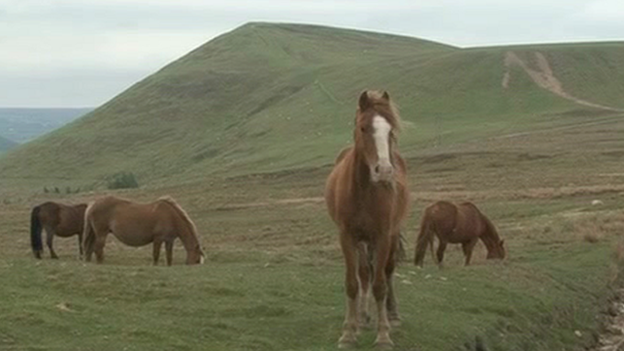Horse cruelty: 'More powers needed' to tackle issue
- Published
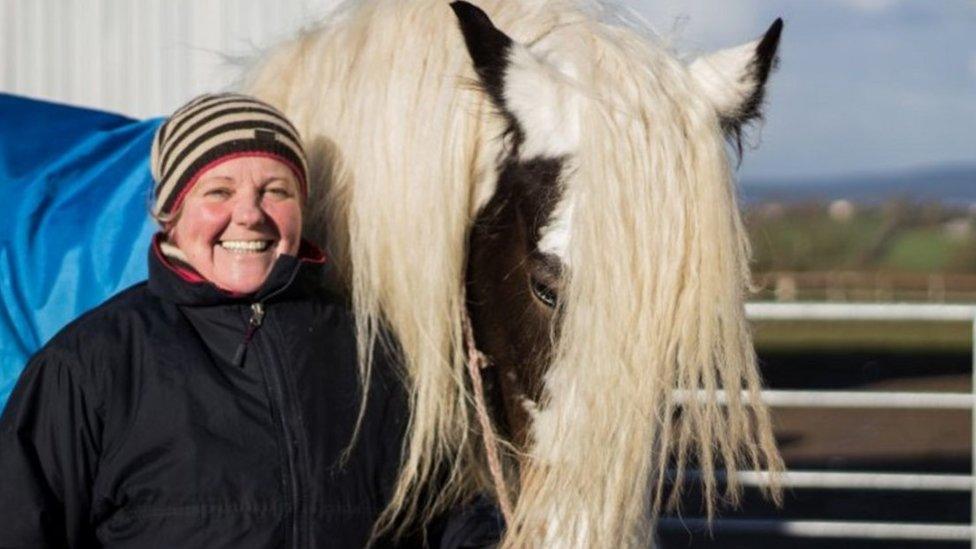
Lisa Lanfear was commended for her commitment to equine welfare during the pandemic
There are calls for charities to be handed powers to enforce laws around horse welfare.
Lisa Lanfear, a welfare officer for the Communities For Horses charity, said no charity had the statutory power to act on concerns about horses.
Councils are able to act, and Ms Lanfear said the situation had improved slightly in some areas.
But she said there were not enough properly trained officers.
Councils are also not obliged to uphold the laws, and Ms Lanfear would like to see them become accountable for equine welfare and be given the resources to enable this.
The Welsh Local Government Association (WLGA) said councils had taken "strong enforcement action" and enforcement teams were facing "significant financial pressures" and "considerable costs" when taking action.
However, the WLGA said councils would "consider all the circumstances of any case to determine the most appropriate course of action".
As part of a series looking at the issues people in Wales would like to see tackled after the Senedd election, BBC News spoke to Ms Lanfear.
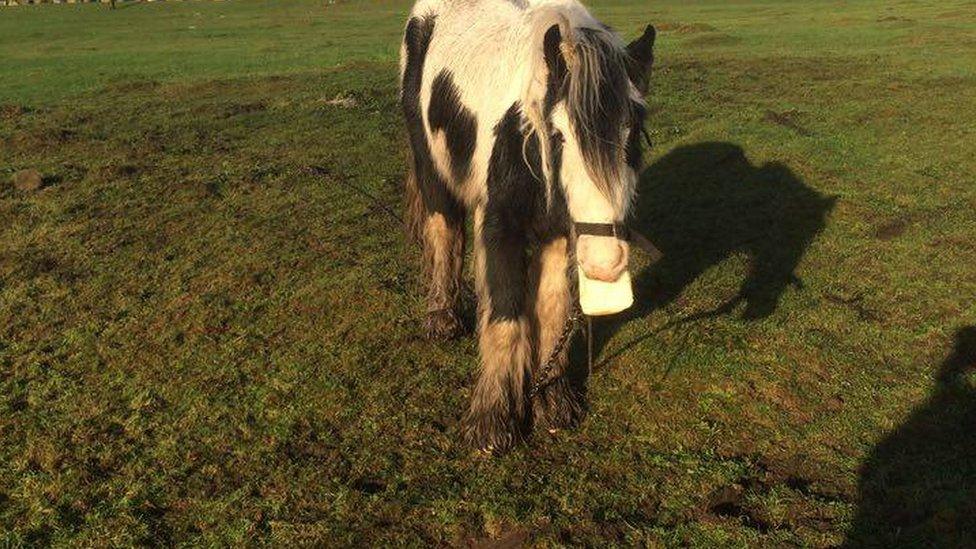
There are calls for tethering horses to be banned but Lisa Lanfear fears it will drive people to hide them
It follows a separate petition going before the Senedd calling for horse tethering - securing a horse to an area with a long rope or chain tied from its headcollar or neck strap - to be banned.
However, Ms Lanfear did not think this was necessarily the correct approach. She said laws were already there to protect horses, and a code of practice was in place for horse tethering, but these needed to be enforced more proactively.
"I can understand why the petition is going, it's not the first to try and ban tethering and I feel a lot of empathy and sympathy towards it."

WALES ALERTS: Get extra updates on BBC election coverage

Ms Lanfear added: "I can understand how people feel when they see a horse tethered as it's not very nice and it's a very emotive subject.
"But there are a lot of things already in place. We already have three sets of legislation."
This includes a requirement for all horses to be passported and microchipped by law, meaning all should be identifiable.
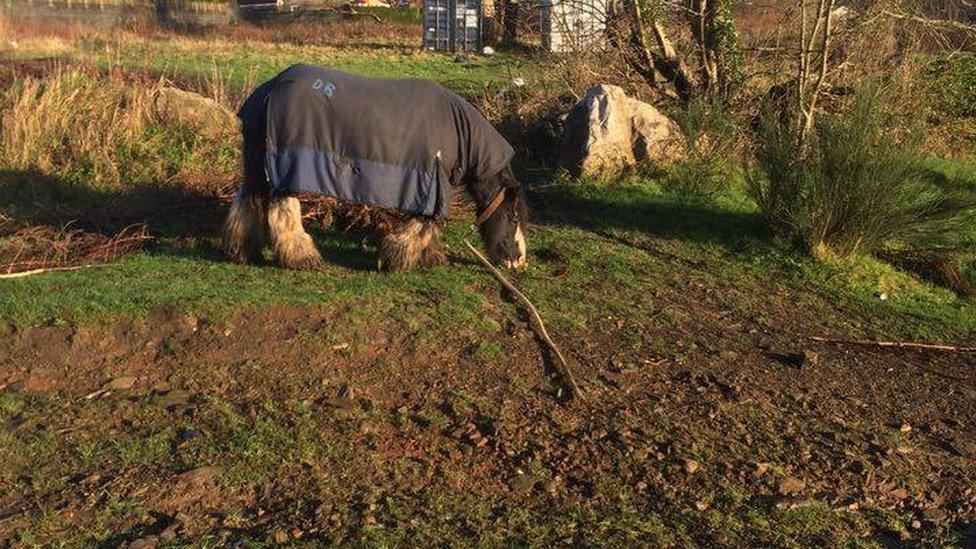
Lisa Lanfear says horses are sometimes tethered or stabled for 24 hours a day
Ms Lanfear said banning tethering would not stop people from owning horses, especially if it was within their culture and heritage to do so.
She added there were issues with stabled horses too, and generally how they were kept across the board.
"Horses are sometimes tethered or stabled 24/7."

WALES ELECTION: THE BASICS
What's happening? On 6 May, people will vote to elect 60 Members of the Senedd (MSs). The party that can command the support of a majority of MSs will form the Welsh government. Find out more here.
What powers does the Senedd have? MSs pass laws on aspects of life in Wales such as health, education and transport - and have some tax powers.
Who can vote? Anyone who lives in Wales, is registered to vote and aged 16 or over on 6 May is eligible. You can register to vote online, external.

Ms Lanfear said she also wanted more awareness of the five domains of welfare, external, a tool to measure welfare needs of all animals.
"Some people do see them as a status symbol, but some people have an innate desire to have horses because it's part of their heritage.
"The horse community is very close-knit, and it comes down to a society which has marginalised them so they stick together, and we need to look at the fact that they are really marginalised and disadvantaged and, again, we see that across the whole of the UK."
'People start hiding horses'
Ms Lanfear added that, if tethering were banned, people would still keep the horses and in potentially worse conditions.
She instead called for more organised grazing schemes and for otherwise unused land to be utilised for horses, so there was enough space for people to offer horses better welfare standards.
"People start hiding horses any way they can, because all are not going to get rid of the horses, they are going to put them somewhere else.
"We have pulled horses out of sheds, coal bunkers, back gardens."
Ms Lanfear, who said horse sanctuaries were already overburdened, said the necessary legislation was already in place but there were simply not enough local authority officers with the correct skillsets to enforce it.
"When there are concerns about horses, we are totally powerless, we don't have statutory powers to act."
She said equine experts existed within charities who could be used to help enforce the rules if they were granted the power to do so.
Ms Lanfear, who co-founded Communities for Horses, was commended by the National Equine Forum for her commitment to equine welfare during the Covid-19 pandemic.
The charity received hundreds of calls during the pandemic from people concerned about the health and safety of horses in Swansea, and Ms Lanfear said she was "thrilled" her work had been recognised.
The WLGA spokesman said: "Local authorities have taken strong enforcement action - including prosecutions leading to imprisonment - in a number of high-profile cases... and will continue to do so wherever appropriate.
"However, enforcement teams are experiencing significant financial pressures, and there are considerable costs involved in taking enforcement action of this kind. Individual local authorities will consider all the circumstances of any case to determine the most appropriate course of action."

POLICY GUIDE: Who should I vote for?
FIRST TIME: Will 16-year-olds vote?

- Published31 March 2016
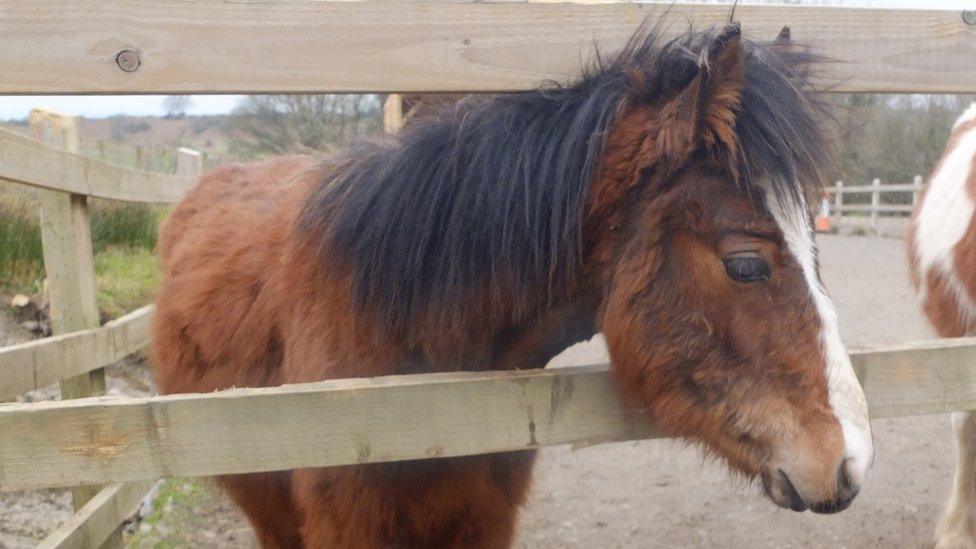
- Published3 August 2016
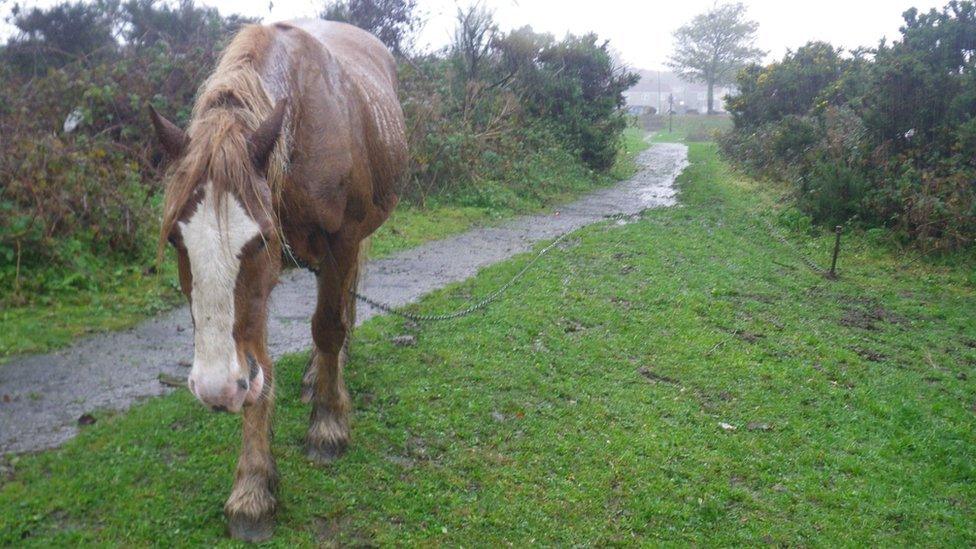
- Published12 June 2015
